Blog del Instituto Cervantes de Dublín
Torre Martello
10 escritores para invitar a casa durante el fin de semana / 10 writers to invite home for the weekend
¿Qué os parece si este fin de semana nos repatingamos en el sillón e invitamos alguno de estos diez autores para que nos visiten con sus historias en el salón de nuestra casa? Son diez autores de éxito, traducidos y premiados, reconocidos internacionalmente, cuyas novelas podéis descargar cómodamente desde vuestra casa a través de nuestra biblioteca electrónica. A ver qué os parece la selección (por orden alfabético, para que nadie se moleste):
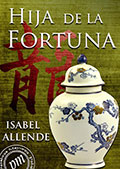 Isabel Allende ¿Quién no ha leído al menos un libro de Isabel Allende, quién no la conoce? Podéis elegir entre La hija de la fortuna (en la imagen) y otros 15 títulos de su extensa bibliografía: El bosque de los pigmeos, La casa de los espíritus, La ciudad de las bestias, Cuentos de Eva Luna, De amor y de sombra, Eva Luna, Inés del alma mía, La isla bajo el mar, Mi país inventado, Paula, El plan infinito, El reino del dragón rojo, Retrato en sepia, La suma de los días, o El zorro.
Isabel Allende ¿Quién no ha leído al menos un libro de Isabel Allende, quién no la conoce? Podéis elegir entre La hija de la fortuna (en la imagen) y otros 15 títulos de su extensa bibliografía: El bosque de los pigmeos, La casa de los espíritus, La ciudad de las bestias, Cuentos de Eva Luna, De amor y de sombra, Eva Luna, Inés del alma mía, La isla bajo el mar, Mi país inventado, Paula, El plan infinito, El reino del dragón rojo, Retrato en sepia, La suma de los días, o El zorro.
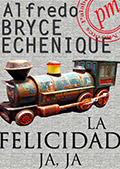 Alfredo Bryce Echenique ¿Habéis leído ya La felicidad, ja ja? ¿Y su obra maestra, Un mundo para Julius? Entonces podéis continuar con A vuelo de buen cubero, Huerto cerrado, o con Tantas veces Pedro.
Alfredo Bryce Echenique ¿Habéis leído ya La felicidad, ja ja? ¿Y su obra maestra, Un mundo para Julius? Entonces podéis continuar con A vuelo de buen cubero, Huerto cerrado, o con Tantas veces Pedro.
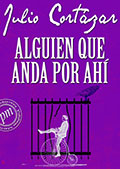 Julio Cortázar Del gran escritor argentino os ofrecemos todo. No creo que se nos escape ningún título. Vamos a ver: Alguien que anda por ahí, Las armas secretas, Bestiario, De pameos y meopas, Deshoras, Diario de Andrés Fava, Divertimento, El examen, Final del juego, Los relatos, Los reyes, Salvo el crepúsculo, Un tal Lucas, Todos los fuegos el fuego, Viaje alrededor de una mesa, La vuelta al día en ochenta mundos, 62. Modelo para armar, Historias de cronopios y de famas, Libro de Manuel, Octaedro, La otra orilla, Papeles inesperados, El perseguidor y otros cuentos de cine, Los premios, Presencia, Queremos tanto a Glenda, y cómo no, Rayuela.
Julio Cortázar Del gran escritor argentino os ofrecemos todo. No creo que se nos escape ningún título. Vamos a ver: Alguien que anda por ahí, Las armas secretas, Bestiario, De pameos y meopas, Deshoras, Diario de Andrés Fava, Divertimento, El examen, Final del juego, Los relatos, Los reyes, Salvo el crepúsculo, Un tal Lucas, Todos los fuegos el fuego, Viaje alrededor de una mesa, La vuelta al día en ochenta mundos, 62. Modelo para armar, Historias de cronopios y de famas, Libro de Manuel, Octaedro, La otra orilla, Papeles inesperados, El perseguidor y otros cuentos de cine, Los premios, Presencia, Queremos tanto a Glenda, y cómo no, Rayuela.
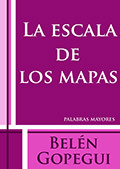 Belén Gopegui es una de nuestras autoras preferidas. ¿Cuántas veces la hemos recomendado ya? Pues nunca nos cansamos. Tenéis a vuestra disposición Lo real y La escala de los mapas.
Belén Gopegui es una de nuestras autoras preferidas. ¿Cuántas veces la hemos recomendado ya? Pues nunca nos cansamos. Tenéis a vuestra disposición Lo real y La escala de los mapas.
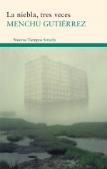 Menchu Gutiérrez Dos títulos también de esta autora: La niebla, tres veces y El faro por dentro.
Menchu Gutiérrez Dos títulos también de esta autora: La niebla, tres veces y El faro por dentro.
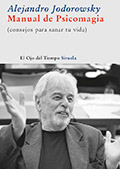 Alejandro Jodorowsky Uno de esos autores que no deja indiferente a nadie. ¿Conocéis ya el Manual de psicomagia: consejos para sanar tu vida? También podéis descargar El maestro y las magas, Evangelios para sanar, La danza de la realidad, Ojo de Oro: (Metaforismos, Psicoproverbios y Poesofía) y Psicomagia :Esbozos de una terapia pánica.
Alejandro Jodorowsky Uno de esos autores que no deja indiferente a nadie. ¿Conocéis ya el Manual de psicomagia: consejos para sanar tu vida? También podéis descargar El maestro y las magas, Evangelios para sanar, La danza de la realidad, Ojo de Oro: (Metaforismos, Psicoproverbios y Poesofía) y Psicomagia :Esbozos de una terapia pánica.
 Rosa Montero es una de las autoras con mayor éxito de ventas a lo largo de su ya extensa carrera literaria. Podéis elegir entre Amado amo, Crónica de desamor, La función Delta, Temblor y Te trataré como a una reina.
Rosa Montero es una de las autoras con mayor éxito de ventas a lo largo de su ya extensa carrera literaria. Podéis elegir entre Amado amo, Crónica de desamor, La función Delta, Temblor y Te trataré como a una reina.
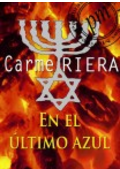 Carme Riera es la miembro más reciente de la Real Academia Española, desde noviembre 2013. En nuestra biblioteca electrónica contamos con los títulos Contra el amor en compañía y otros relatos, Cuestión de amor propio, En el último azul, Tiempo de espera y Una primavera para Doménico Guarini.
Carme Riera es la miembro más reciente de la Real Academia Española, desde noviembre 2013. En nuestra biblioteca electrónica contamos con los títulos Contra el amor en compañía y otros relatos, Cuestión de amor propio, En el último azul, Tiempo de espera y Una primavera para Doménico Guarini.
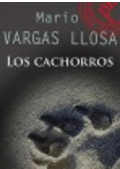 Mario Vargas Llosa debería estar sin duda mejor representado, pero aún así podemos disfrutar de dos de sus títulos más emblemáticos: Los jefes y Los cachorros.
Mario Vargas Llosa debería estar sin duda mejor representado, pero aún así podemos disfrutar de dos de sus títulos más emblemáticos: Los jefes y Los cachorros.
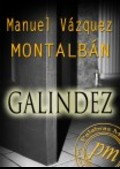 Y para terminar, siempre merece la pena recordar al añorado Manuel Vázquez Montalbán con títulos como Autobiografía del general Franco, Crónica sentimental de España, El estrangulador, Galíndez, Informe sobre la información, El manifiesto subnormal y El pianista.
Y para terminar, siempre merece la pena recordar al añorado Manuel Vázquez Montalbán con títulos como Autobiografía del general Franco, Crónica sentimental de España, El estrangulador, Galíndez, Informe sobre la información, El manifiesto subnormal y El pianista.
Lo mejor de todo es que si preferís otro tipo de literatura, otros autores, solo tenéis que teclear su nombre en la caja de búsqueda. Tenéis más de 2650 títulos a vuestra disposición. Está clarísimo: con nuestra biblioteca electrónica, el que no lee buenos libros en español es porque no quiere.
What do you think if this weekend we sat back in our favorite chair and invite any of these ten authors to visit us with their stories? They are ten successful authors, whose novels can be downloaded easily from our electronic library. See what you think of the selection (please find the list above).
Best of all, if you prefer another type of literature or other authors, you can just type their name in the search box. You have about 2650 titles available on our e-book platform. Let’s make it clear: with our electronic library, if you don’t read good books in Spanish it’s simply because you don’t want to.
Mario Vargas Llosa y Seamus Heaney en el Instituto Cervantes de Dublín / Mario Vargas Llosa and Seamus Heaney at the Instituto Cervantes in Dublin
El pasado lunes, antes del encuentro literario que tuvo lugar en el Instituto Cervantes de Dublín con Mario Vargas Llosa y Juan Cruz, dos grandes de la literatura, dos premios Nobel, se reunieron en la Biblioteca del Instituto Cervantes de Dublín.
En el video, Mario Vargas Llosa y Seamus Heaney intercambian comentarios sobre su obra y sobre su experiencia en Estocolmo, adonde viajaron para recibir el galardón de la academia sueca.
La velada literaria tuvo lugar a continuación de este encuentro, con motivo de la presentación en el Instituto Cervantes de Dublín de la traducción al inglés de El sueño del celta (The dream of the Celt), la última novela de Mario Vargas Llosa.
Mario Vargas Llosa, Premio Nobel de Literatura en 2010, Premio Cervantes en 1994 y Premio Príncipe de Asturias de las Letras en 1986, es uno de los más importantes novelistas y ensayistas contemporáneos. Nacido en Arequipa, Perú, en 1936, viajó a España en 1959 gracias a una beca para realizar un doctorado en la Universidad Complutense de Madrid.
Ese mismo año, vio la luz su primera publicación, Los jefes, un conjunto de cuentos que obtuvieron el premio Leopoldo Alas. Sin embargo, no sería hasta la década de 1960 cuando publicó tres de las obras que lo lanzaron a la fama: La ciudad y los perros (1962), La casa verde (1965) y Conversación en La Catedral (1969). En 2010, tras recibir el Premio Nobel, publicó El sueño del celta, en la que se cuenta la peripecia vital de un hombre de leyenda: el irlandés Roger Casement, uno de los primeros europeos en denunciar los horrores del colonialismo.
Last Monday, before the literary evening at the Instituto Cervantes in Dublin with Mario Vargas Llosa, and Juan Cruz , two literary great writers, two Nobel laureates, gathered at the Instituto Cervantes Library in Dublin.
In this video, Mario Vargas Llosa and Seamus Heaney exchange comments about their work and their experience in Stockholm, when they traveled there to receive the award from the Swedish Academy.
The literary evening ensued on the occasion of the presentation of the English translation of El sueño del celta (The dream of the Celt) at the Instituto Cervantes in Dublin.
The dream of the Celt is Mario Vargas Llosa’s latest novel, where he tells the life story of a legendary man: the Irish Roger Casement, one of the first Europeans to denounce the horrors of colonialism.
Mario Vargas Llosa, Nobel Prize in Literature 2010, Cervantes Award 1994, Príncipe de Asturias de las Letras Award 1986, is one of the most significant contemporary novelists and essayists.
Mario Vargas Llosa was born in 1936 in Arequipa (Peru). He travelled to Spain in 1959 thanks to a bursary to complete a doctorate at Complutense University in Madrid.
On the same year, he published his first work, Los jefes, a compilation of stories. It is not, however, until the 60´s when he published three of the works that launched him to fame: La ciudad y los perros in 1962, La casa verde in 1965 and Conversación en La Catedral in 1969.
Following a period of intense political activity, he returned to writing in 1993 with his book of memoirs El pez en el agua. In 2010, he published The dream of the celt.
El hombre que se atrevió a soñar / The man who dared to dream
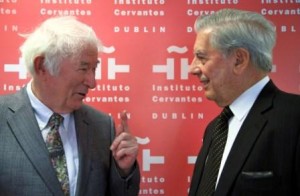 Hoy hemos recibido a Mario Vargas Llosa en el Instituto Cervantes de Dublín. El premio Nobel de Literatura 2010 ha charlado con Juan Cruz ante más de doscientas personas acerca de su última novela, El sueño del celta y su protagonista, Roger Casement.
Hoy hemos recibido a Mario Vargas Llosa en el Instituto Cervantes de Dublín. El premio Nobel de Literatura 2010 ha charlado con Juan Cruz ante más de doscientas personas acerca de su última novela, El sueño del celta y su protagonista, Roger Casement.
Durante la velada, también hubo tiempo para reflexionar acerca de la banalización de la cultura, a propósito de la reciente publicación del libro de ensayo de Vargas Llosa que lleva por título La civilización del espectáculo, y por supuesto para saludar y conversar con su viejo amigo, Seamus Heaney.
El pasado fin de semana se publicó en el Irish Times una elogiosa crítica de El sueño del celta, publicado en inglés por Faber and Faber. El resumen de la conferencia que retransmitimos a través de twitter se puede consultar en: http://storify.com/icdublin/en
Tonight Instituto Cervantes Dublin hosted Mario Vargas Llosa. Over 200 guests listened to the laureate of the 2010 Nobel Prize in Literature chat to Juan Cruz about his recent novel “The Dream of the Celt” and its protagonist Roger Casement.
During the evening there was also an occasion to reflect on trivialization of culture, alluding to Vargas Llosa’s recent book of essays “Civilization of the spectacle”, and to say hello to his old friend Seamus Heaney.
Last weekend The Irish Times featured a laudatory review on The Dream of the Celt published in English by Faber & Faber. The conference transmitted live on twitter is available here: http://storify.com/icdublin/en
Encuentro Literario con Mario Vargas Llosa / Literary evening with Mario Vargas Llosa
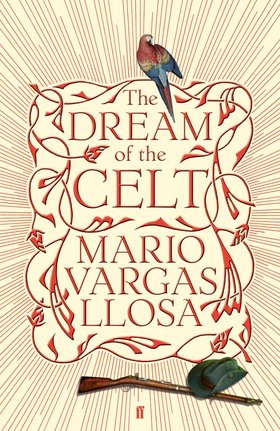 Premio Nobel de Literatura en 2010, Premio Cervantes en 1994, Premio Príncipe de Asturias de las Letras en 1986… éstos son tres ejemplos de los muchos reconocimientos que ha recibido a lo largo de su carrera como escritor Mario Vargas Llosa, uno de los más importantes novelistas y ensayistas contemporáneos. El Instituto Cervantes de Dublín se complace en invitarte a asistir a una conversación entre este magnífico escritor y Juan Cruz.
Premio Nobel de Literatura en 2010, Premio Cervantes en 1994, Premio Príncipe de Asturias de las Letras en 1986… éstos son tres ejemplos de los muchos reconocimientos que ha recibido a lo largo de su carrera como escritor Mario Vargas Llosa, uno de los más importantes novelistas y ensayistas contemporáneos. El Instituto Cervantes de Dublín se complace en invitarte a asistir a una conversación entre este magnífico escritor y Juan Cruz.
Mario Vargas Llosa, nuestro autor del mes de junio, nació en 1936 en Arequipa (Perú). En 1959 viajó a España gracias a una beca para hacer un doctorado en la Universidad Complutense de Madrid, donde obtuvo el título de Doctor en Filosofía y Letras.
Ese mismo año, vio la luz su primera publicación, Los jefes, un conjunto de cuentos que obtienen el Premio Leopoldo Alas. Sin embargo, no será hasta la década de 1960 cuando publique tres de las obras que lo lanzaron a la fama: La ciudad y los perros (1962), La casa verde (1965) y Conversación en La Catedral (1969).
En 2010, la editorial Alfaguara publica El sueño del celta, en la que se cuenta la peripecia vital de un hombre de leyenda: el irlandés Roger Casement, uno de los primeros europeos en denunciar los horrores del colonialismo. Esta novela, traducida al inglés, ha sido publicada por la editorial Faber and Faber a principios de junio de 2012 bajo el título The dream of the celt.
Mario Vargas Llosa conversará con Juan Cruz, periodista y escritor español que en la actualidad ocupa el cargo de adjunto a la dirección del diario El País. Su primera novela fue publicada en 1972 bajo el título Crónica de la nada hecha pedazos. Ha participado en radio y televisión y también en numerosas conferencias y cursos.
Para asistir a este encuentro es necesario presentar invitación. Para conseguirla, pregunta por favor al bibliotecario: bibdub@cervantes.es. ¡Pero date prisa, que se acaban!
Nobel Prize in Literature 2010, Cervantes Award 1994, Príncipe de Asturias de las Letras Award 1986… three examples of the many awards that Mario Vargas Llosa has received during his writing career. He is one of the most significant contemporary novelists and essayists. Instituto Cervantes Dublin is proud to invite you to a conversation with this outstanding author and the Spanish writer Juan Cruz.
Mario Vargas Llosa, our author of the month in june, was born in 1936 in Arequipa (Peru), travelled to Spain in 1959 thanks to a bursary to complete a doctorate by the Complutense University of Madrid where he was awarded a Doctorate in Philosopy and Literature.
On the same year, he published his first work, Los jefes (The leaders), a compilation of stories. He was awarded the Leopoldo Alas prize for this piece. It is not, however, until the 60´s when he published three of the works that launched him to fame: La ciudad y los Perros (The City and the Dogs) in 1962, La casa verde (The Green House) in 1965 and Conversación en La Catedral (Conversation in the Cathedral) in 1969.
Following a period of intense political activity, he returned to writing in 1993 with his book of memoirs El pez en el agua (A Fish in the Water).
Alfaguara publishing house launched El sueño del celta in 2010. This is Vargas Llosa’s latest novel where he tells the life story of a legendary man: the Irish Roger Casement, one of the first Europeans to denounce the horrors of colonialism. This novel has been translated into English and is due to be published by Faber and Faber at the beginning of June 2012 with the title The dream of the Celt.
Juan Cruz, Spanish journalist and writer, is Assistant Director at the Spanish newspaper El País. His first novel was published in 1972 with the title Crónica de la nada hecha pedazos. He has participated in radio, television and in numerous conferences and courses.
Please remember: Strictly by invitation. Ask the librarian for details: bibdub@cervantes.es
Virtual interview with Juan Cruz
Virtual interview with Juan Cruz, Instituto Cervantes Dublin Library, 14th June 2011. Translated by Emer Cassidy.
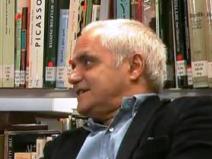
Hector Barco Cobalea
Good afternoon,
I’d like to throw out a few questions, and chance being so lucky as to have them answered by Mr. Juan Cruz Ruiz:
– Do you think journalism is truly free, or is it subject to certain interests, not just political, but also economic, in that huge economic and/or political organisations buy advertising space from the main media providers, this being one of their main sources of income?
– What is your take on billions of dollars being shifted in just a few days to save the banks, whilst at the same time, the Food and Agriculture Organization requested 12,000 million dollars to fight hunger across the planet and was turned down?
– Is the average citizen justified in feeling indignant?
Thank you to all involved for enabling me to send in my questions.
Regards,
Hector.
Juan Cruz
Héctor, I had written a long reply, but cyberspace swallowed it up.
In summary:
Journalism is free to the same extent that people are: within limits. We are all dependent on certain interests. Newspapers as well. Nobody is completely free. The press needs to have strong businesses behind them in order to withstand the pressures on their editorial policies. And that’s why advertising is so necessary; without advertising, newspapers would certainly be at the will of economic and political interests.
The banks were rescued with public money, and they must return that money. Without a doubt, the terms with which they were given the money could have been stricter, but it’s not true that it was given to them freely and lightly, that is just not the case. I agree that they should have been penalised for their insane dealings. But within the capitalist system, if such mechanisms weren’t possible, it would lead to global disaster. Should we change the system? Let’s change it. But, in the meantime, this is what we’re left with.
Of course citizens are justified in feeling indignant. And, not just that, but also, worried, questioning, doubtful. And to act on their indignation, so that it doesn’t anchor them down with futile feelings of powerlessness and depression.
David Carrión
Good afternoon, Mr. Cruz. What motivated Vargas Llosa to write The Dream of the Celt? Was it reading The Heart of Darkness, was it Casement’s link with Peru, or his studies of Adam Hochschild’s work…?
Juan Cruz
In my opinion, Vargas Llosa always begins writing a new project once his imagination is sparked, and after finishing the fiction work, The Bad Girl, he decided to follow the footsteps of Casement, an Irishman who lived a controversial but fascinating life.
Bringing this life to the masses required an enormous intellectual, literary, and even physical effort, on the part of Vargas Llosa. And the outcome reads like an adventure as told by a special envoy to hell itself.
The author himself explained that it was reading Conrad, in particular, that motivated him to write this spectacular narrative essay. He is a voracious reader; he wanted to really scrutinise the finer details of a character, and that’s where Roger Casement comes in, in full-body portrait, right to the depths of his misfortunes.
Laura Martín
Is The Heart of Darkness a racist book, or a damning report of European colonisation? What was the aim of The Dream of the Celt, if indeed there was one?
Juan Cruz
I don’t think Conrad’s book was racist; from our current perspective on racism, or inequality, we could equally be tempted to condemn Madame Bovary, for example; and I think Conrad’s literature should be read as a great voyage of the mind, rather than a sociological reflection on the author’s ideology or view of the world and himself at that particular moment in time.
DCarrión
Conrad knew Casement and he wrote in this diary that of all the people he had known during his stay in the Congo, it was Casement he admired the most. So why did Joseph Conrad not sign the petition for clemency for Roger Casement, unlike Yeats, Bernard Shaw and Conan Doyle who all signed it?
Juan Cruz
Vargas Llosa dwelled a lot on that incident; I think Conrad felt cornered and slightly envious and he bore Casement a grudge, being someone who tended not emphasise his own talents, he felt outshone by Casement during his time in Africa. That’s why he left him in the lurch, and frankly, that was very hurtful to Casement. Similar to other times in his life when he felt cast off.
LMartín
What was the dream that was driving Roger Casement when he arrived in Congo?
Juan Cruz
It was a philanthropic dream. He truly wanted to play a part in the abolition of slavery there where it was actually taking place, and that’s exactly what he did. Every fibre of his being was devoted to helping people, that was what he lived for, to help others free themselves from the shackles of feudal despotism. It was then used as a symbol which some tried to make controversial by drawing tenuous parallels with his own issues with his sexuality. Vargas Llosa pays him heartfelt tribute, at pains to put right the controversy created by the British.
DCarrión
What does Mario Vargas Llosa have in common with Antonio Conselheiro from The War of the End of the World, Alejandro Mayta from The Real Life of Alejandro Mayta, and with Roger Casement?
Juan Cruz
I think the only thing Vargas Llosa has in common with those characters is that he worked out the minutest details of their lives with the same intensity he then gave to their lives within the storyline, so that they would live on, and stand the test of time, in the minds of his readers.
LMartín
A critic once broke Vargas Llosa’s novels down into 4 broad categories: urbane, historical, dealing with rural Peru, and erotic novels. Could we consider The Dream of the Celt a historical novel?
Juan Cruz
I think putting The Dream of the Celt into the historical box would be to take away some of its power and impact. From my point of view, aside from being a novel which has its roots in history, it is more a great anachronistic, or even uchronic, report on a fascinating era by both Mario, the reporter, and Vargas Llosa, the novelist. And it is also a wartime plea for human rights, a book denouncing slavery in favour of romanticism, as man’s conviction to live in harmony with his fellow kind.
DCarrión
Are there any elements in The Dream of the Celt which are new to Vargas Llosa’s work?
Juan Cruz
I think what is new is the book in its entirety; Vargas Llosa always approaches a subject from a completely new standpoint. He could have put together an essay of the proportions of a novella, based on his readings, and he read widely around the subject. Instead, he honed in on the different areas of Roger’s biography, brought them together onto the one platform in his mind, and from there he went on to create a volume in which he demonstrated his skills as a reconstructor of stories, but also, as a great fiction author. He has never said so himself, never actually specified it, but Mario Vargas Llosa, the fiction author, is also present in The Dream of the Celt.
LMartín
If García Márquez’s work could be seen as a portrayal of power, and its vestiges, could Vargas Llosa’s work be seen as a portrayal of the resistance to or the growing awareness of that power?
Juan Cruz
I think that’s a good analogy. But, actually, I think all of Mario Vargas Llosa’s work has to do with power, even when it seems more to do with other subjects. Particularly, A Fish in the Water, which despite having been written in the midst of the biographical journey he was undertaking at the time, it is like the mid-point in which all of his ambitions, tragedies, and the majority of his books converge.
DCarrión
Vargas Llosa, Cabrera Infante and José Saramago. These are perhaps the three authors, and friends, who have most influenced your literary life. Is that right? Are there any others you would add?
Juan Cruz
My life in particular? Perhaps. I would add Onetti and Borges. And also, Unamuno’s poetry. And Kafka. Well, literature is never-ending. Oh, and Cortázar.
LMartín
In 1972, you published “Crónica de la nada hecha pedazos”. You said that all of your work published in book format originates from this book, because it was in this book you began using reality to narrate your obsessions, dreams, and how those dreams can be broken. Tell us about your broken dreams. Are there any still lingering around?
Juan Cruz
My broken dreams are still around. Those that aren’t are the ones I haven’t been able to break.
DCarrión
“Crónica de la nada…” is a sesentayochista chronicle [referring to the revolution of 1968] turned into a novel. Do you think one day there will be a 15M [common abbreviation for the mass protest held on the 15th May 2011, in Madrid, against political mismanagement of the economic crisis] chronicle, or would that be a book that would be worth writing?
Juan Cruz
It should be written. I’ve just interviewed Javier Cercas about the subject. He is very clear on how (extremely) important this phenomenon is. Something is changing, without a doubt, and for the better, despite this endless tide of injustice and corruption we are going through at the moment.
LMartín
The presence of the sea is fundamental in “Retrato de un hombre desnudo” (2005). What does it symbolise?
Juan Cruz
The sea is life, and thus, it is also death. I was writing a book about the sea as life, and then death turned up out of nowhere. Life has such gravity, it fells us all.
DCarrión
In reference to “Retrato de un hombre…”, imbued as it is with many’s a travel anecdote, you said that no matter how much a person travels, “they are always in the same place”. Which is the place in which you always find yourself? And would you ever like to escape?
Juan Cruz
That’s a phrase by Beckett, and actually he was talking about his relationship with Ireland: “poor me, I thought I had left the island behind me, but the island is always by my side”.
That’s the way it is. My book is based by the sea, so that I can escape, and all of sudden, I see myself as part of the sea, the sea comes with me.
LMartín
Verne and Dickens are some of the authors you read in your teenage years as mentioned in “Retrato de un hombre desnudo”. Were there other authors before those who also had an important effect on you? Which were the authors, or books, that made you a writer?
Juan Cruz
Before that there were the instruction leaflets that come inside boxes of pills, old torn newspapers my mother had, anything that was susceptible to being read, and an old book by Oscar Wilde, “The Nightingale and the Rose”.
DCarrión
In “Retrato de un hombre desnudo”, you pay homage to your mother, from whom you said you have learnt more than from any other person. “Ojalá octubre” (2007) is a homage to your father. Which questions, or desires, did Juan the boy inherit from him?
Juan Cruz
Uncertainty, things were always about to be either very miserable or very happy, and they were almost always miserable. But there were also wonderful moments in which he was happy. That’s the way I am, I come from him.
LMartín
Was it your childhood from that October which you would have liked to have continued forever?
Juan Cruz
I would like the feeling of childhood to continue forever. To go through all stages of life with the feeling of harmony you capture as a child.
DCarrión
In “Muchas veces me pediste que te contara estos años” (2008), you reflect on time, memory, pain, and growing older. Has this reflection led to any conclusions?
Juan Cruz
It’s a triple reflection which merges into one: our lives are inside of us, on our interior, and inside everything is mixed together into one whole. I am my literature, it explodes inside me. Does that seem pedantic? I’m afraid that’s the way I see it, if you don’t like my answer then forget it, but what I mean is: for me, writing is all of those things, time, memory, pain, and fear of dying. And if what I write doesn’t respond to those precepts, then I feel like I am merely worthlessly distorting my thoughts.
LMartín
Comparing your first book to your current work, it seems like you have given up a certain experimentalism for a lighter style. Is that one of the concessions caused by the commercialisation of the publishing world you mention in “Egos revueltos” (2009)?
Juan Cruz
Oh, not at all, LMartín. It’s simply that over the years I decided to write so that my brothers would read my work, ever since a particular text I wrote so that we would never forget the wonderful woman that was my mother. It’s deliberate, but my brothers don’t buy my books. They feature in them. Except “Egos revueltos”, for certain, although they’re in there somewhere, in some way or another.
LMartín
Would any current publishers dare to publish a new James Joyce?
Juan Cruz
Of course they would. That’s what a publisher’s job should be. To wait for a James Joyce to come along.
DCarrión
On the subject of cultural journalism, there are those who insist that it generally displays a total lack of interest in culture. Do you agree with that? What is there left in the cultural pages of a newspaper if we take away the obituaries and press releases from the various publishers’ and institutions’ press departments?
Juan Cruz
I think any maximalist views run the risk of being unfair. There are some great cultural journalists, particularly in Latin America, where this type of journalism has become a specialism. And there are some very good ones closer to home as well. And there are very good sources of information on culture out there, despite what you say. Don’t be unfair, my friend!
Thank you very much for your participation.
Related links:
Profile of Juan Cruz on elpais.com, with links to his articles and interviews
- Reviews of Juan Cruz’s books on Lecturalia
- Podcast: Juan Cruz in interview with Mario Vargas Llosa, about the fiction in roman and drama: Fundación Juan March. 27/09/2007
- Podcast: Interview with Juan Cruz after the decease of Portuguese writer José Saramago. Cadena Ser. 19/06/2010
- Podcast: Juan Cruz presents his book “Egos revueltos”. Cadena Ser. 02/03/2010
- Blog: Juan Cruz’s blog in El País “Mira que te lo tengo dicho”
- Virtual interview: Juan Cruz. Journalist and author of “¿Periodismo? ¿Vale la pena vivir para este oficio?”. elpais.com. 17/06/2010
- Video: the 2010 Nobel Prize in Literature Mario Vargas Llosa appears in the CNN+ evening news, where he greets on live the director and journalis of EL PAIS Juan Cruz.
About Mario Vargas Llosa and “The dream of the Celt”
- Video: Interview to Mario Vargas Llosa at Cervantes TV: Voces impresas
- Video: Vargas Llosa in RTVE, Informe Semanal: El sueño del escribidor
- Interview: Vargas Llosa about Roger Casement
- Review: “The dream of the Celt” on El Cultural
- Review: “The dream of the Celt” on El País
- Reviews from the readers: “The dream of the Celt” on Lecturalia
- Official webpage of Mario Vargas Llosa
About Roger Casement
- Roger Casement on Wikipedia.
Juan Cruz is our author of the month throughout the month of June.
Mario Vargas Llosa: entrevista / interview
 Mario Vargas Llosa receives today at 4:30 pm CET the Nobel Prize for Literature 2010.
Mario Vargas Llosa receives today at 4:30 pm CET the Nobel Prize for Literature 2010.
Cervantes TV just launched this extensive interview with Mario Vargas Llosa, the last performed by the Cervantes Institute before the Peruvian author being awarded the Nobel Prize.
Among many other issues, Mario Vargas Llosa talks about his latest novel. This way, CervantesTV opens the Cervantes Printed Voices series, which will include testimony from several Spanish and Latin American authors.
The publication of this interview is another activity that the Cervantes Institute is conducting prior to the award, which culminate today in Stockholm.
Cervantes TV acaba de publicar esta extensa entrevista con Mario Vargas Llosa, última realizada por el Instituto Cervantes al autor hispanoperuano antes de ser galardonado con el premio Nobel, donde habla, entre otros muchos asuntos, de su última novela.
La de Vargas Llosa inaugura en la televisión del Cervantes la serie Voces impresas, que recogerá testimonios de diversos autores españoles e hispanoamericanos.
La publicación de esta entrevista es otra de las actividades que el Instituto Cervantes está llevando a cabo previamente a la entrega del premio, que culminarán hoy en Estocolmo.
Wondering where to start with the new Nobel laureate?
Mario Vargas Llosa: Five essential novels
Wondering where to start with the new Nobel laureate? Here are five highlights
And the Nobel goes to Mario!
At last!
Mario Vargas Llosa wins Nobel prize for literature.
Congratulations Mario and thank you for your novels!
Peruvian author Mario Vargas Llosa has won the 2010 Nobel Prize for Literature.
The awarding committee said Vargas Llosa received the award “for his cartography of structures of power and his trenchant images of the individual’s resistance, revolt and defeat”.
The prize of 10 million Swedish krona (€1.07 million) was the fourth of this year’s Nobel prizes, following awards for medicine on Monday, physics on Tuesday and chemistry yesterday.
The Peruvian writer, novelist and politician Mario Vargas Llosa has won the 2010 Nobel prize for literature.
Cited by the Swedish Academy for “his cartography of structures of power and his trenchant images of the individual’s resistance, revolt and defeat”, the 10m SEK (£1m) award crowns a literary career that was launched in 1963 with his novel The Time of the Hero, and includes further books such as Conversation in the Cathedral (1969), Aunt Julia and the Scriptwriter (1977) and The Feast of the Goat (2000).
The Peruvian writer Mario Vargas Llosa, whose deeply political work vividly examines the perils of power and corruption in Latin America, won the 2010 Nobel Prize in Literature on Thursday.






